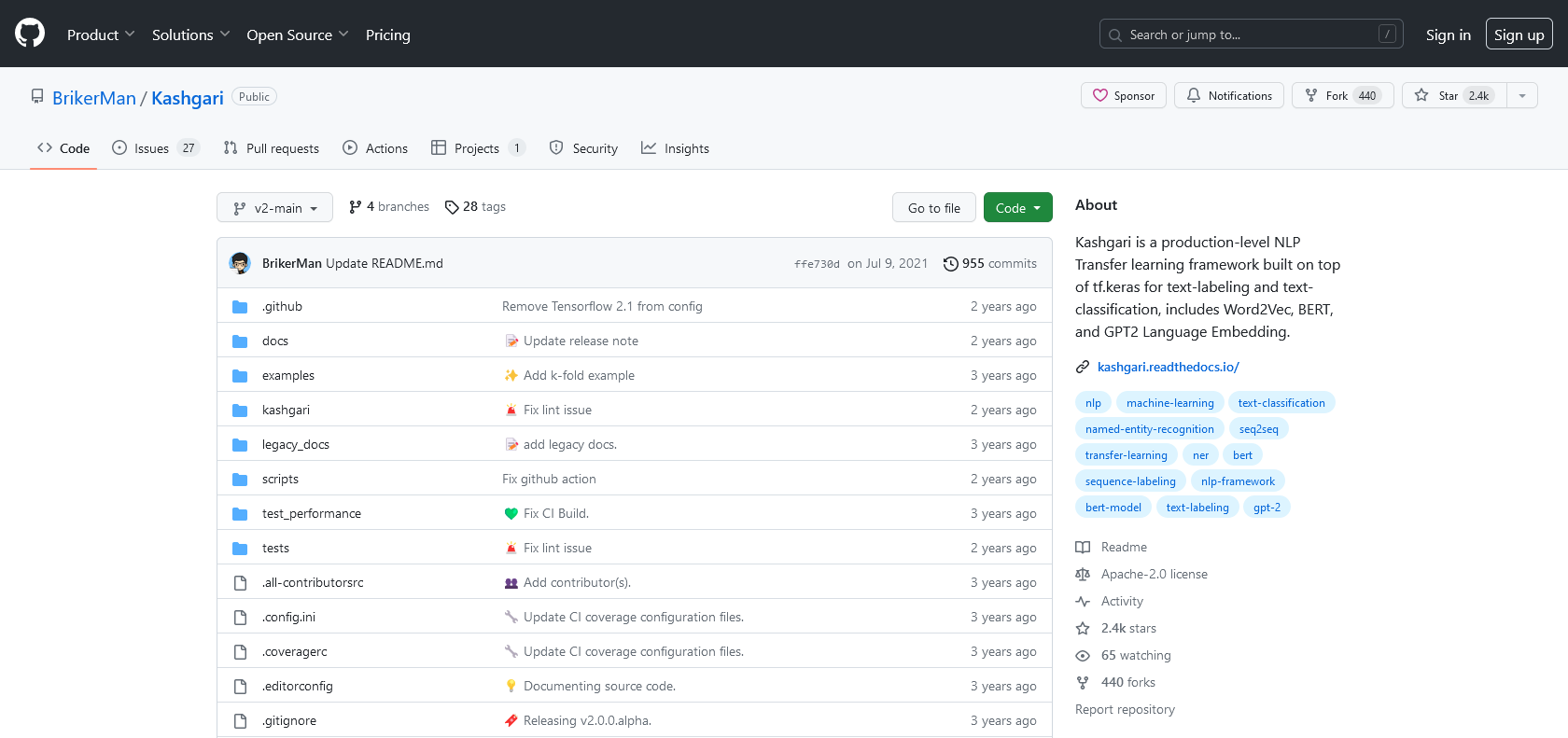Discover 7422 Tools

Deep learning models for advanced NLP.
Kashgari Review and Features: Automate sentiment analysis, generate text summarization, and detect intent with Kashgari's powerful NLP framework.

Kashgari is an exceptional open-source NLP framework that aims to assist developers in creating cutting-edge deep learning models suited for text classification and sequence labeling tasks. Offering a wide range of capabilities, Kashgari facilitates the development of complex neural network models through its intuitive interface and powerful set of APIs. The framework also provides pre-trained models, generously covering tasks like sentiment analysis, intent classification, and text summarization. With comprehensive documentation and tutorial resources, Kashgari ensures that developers can quickly and effortlessly dive into their NLP projects. By harnessing the power of Kashgari, developers can elevate their NLP applications with ease and efficiency through the utilization of powerful deep learning models.
Use pre-trained models for quick implementation.
Kashgari

Join the AI revolution and explore the world of artificial intelligence. Stay connected with us.
Copyright © 2025 AI-ARCHIVE
Today Listed Tools 490
Discover 7422 Tools